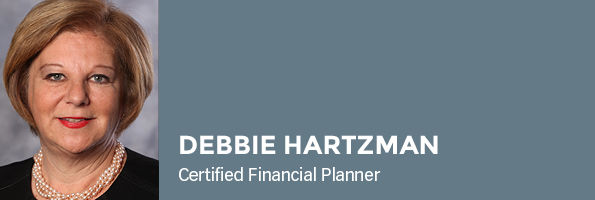
Helping divorcing couples
Debbie Hartzman helps couples in divorce – and the lawyers don’t always like it.
It’s a fine line, but the certified divorce financial analyst with a “rock-solid” retainer agreement, works to help those going through a separation or divorce to understand the long-term effects of any proposed settlements, and provides analysis to help both clients and their lawyers understand the information available.
The work is important, particularly from a financial point of view, because even the most amicable division of assets can be the single biggest threat to viable retirement plans, but also because the legal process itself can quickly erode any accumulated assets.
“The first thing people will say when they’re separating is ‘I’m calling my lawyer,’” Hartzman says. Just understanding how the system works, however, can save divorcing couples a substantial sum in fees. “My philosophy was always to preserve the estate for both parties. Don’t burn your dollars fighting over stuff there’s no point in fighting over, just because there’s emotional baggage.”
The line is fine, however, because an advisor providing advice under the circumstances – who actually tells a client what to do – can be accused of practicing law without a license.
Despite the fact Hartzman does not help couples unless each has their own legal counsel, she still found herself in the unenviable position of having to defend her actions, when a lawyer reported her to the Law Society of Upper Canada, alleging that she was dispensing legal advice.
“They didn’t understand what I was doing, and they didn’t take the time to understand. They just thought I was cutting their grass,” she says.
At that point too, her legal advisors refused to help.
“I thought about it, and I said, ‘You know what? I can do this. I’m not worried. I’ve done nothing wrong.’ All I’m doing is financial planning for the people that are going through separation and divorce. And I have a higher level of knowledge,” she adds.
And so, Hartzman prepared her own defence, pointed out that she was well trained – both in law procedures, and as a divorce analyst – and knew quite clearly where the line was that she had supposedly crossed.
“I said, ‘point to something I’m doing wrong, and I’ll cease and desist. If not, you need to take the highway.’ And they took the highway.”
Still, and despite having written the book on divorce planning for advisors (Divorce Isn’t Easy, But It Can Be Fair), and some of the first Canadian divorce certification curriculum, the ordeal lead her to curtail any effort to market her divorce planning expertise going forward.
“I’m just really selective about the cases I’ll take, and what I’ll get involved in,” she says. “It’s just what comes to me at that point.”
In a similar way, a lot of the work she does with other clients (Hartzman’s other expertise is disability tax planning), comes to her by referral. “It’s very hard to get to those people, very hard,” she says. “People who have these challenges don’t have the time to really sit down and understand these things.”
Still, “getting the right message to the right people,” she says, is a predominant business focus in her business today. “The benefits are huge.”
In addition to her practice, Hartzman serves on the board with the Kingston chapter of Advocis, the Society of Trust and Estate Planners, and works with the Down Syndrome Association of Kingston.






